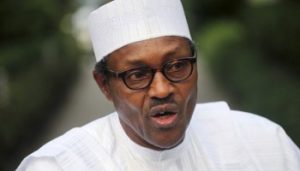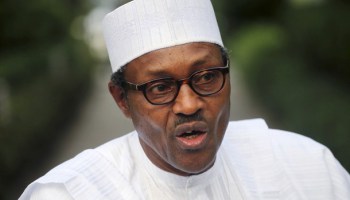PRESIDENT Muhammadu Buhari, on Saturday, in Nairobi, Kenya, assured the international community that Nigeria would diligently ensure full rehabilitation of victims of the Boko Haram insurgency and find lasting solutions to the threats posed by terrorism.

The president spoke at a two-day sixth Tokyo International Cooperation for Africa (TICAD) attended by Japanese Prime Minister, Shinzo Abe and 34 other African leaders to address efforts to roll back the negative effects of terrorism in Nigeria and other African countries.
In his remarks at the plenary session of the summit, Buhari spoke of the successes of his administration in degrading the Boko Haram terrorist organisation, noting that life was returning to normal in the areas the insurgents previously occupied.
President Buhari said with Boko Haram degraded, the reintegration of Internally Displaced Persons (IDPs) in the country would receive immediate attention.
He acknowledged Japanese assistance through UNICEF in the rehabilitation of the victims and commended development partners for their work geared towards improving the lives of some two million IDPs in the country.
“The bottom line is that these problems are our primary responsibility. We must tackle them and find lasting solutions for ourselves,’’ he said.
President Buhari told the summit, also being attended by chief executives of at least 80 major companies from Japan, that international cooperation with Nigeria was central to the decimation of Boko Haram terror group.
According to him, ‘’I took over the mantle of leadership in Nigeria when the North-eastern part of the country was being ravaged by Boko Haram.
‘’However, soon after assumption of office, our administration, with the support of our immediate neighbours – Chad, Cameroon, Niger and Benin- and international partners including Japan, faced the challenge frontally.
‘’As I speak, the terror group has been decimated and life is beginning to return to normal in the affected region.
“The challenge we currently face which is also being addressed, is that of the IDPs which number over two million, to get them re-integrated with their families and their original homes.’’

